2019 Hall of Honor Inductees
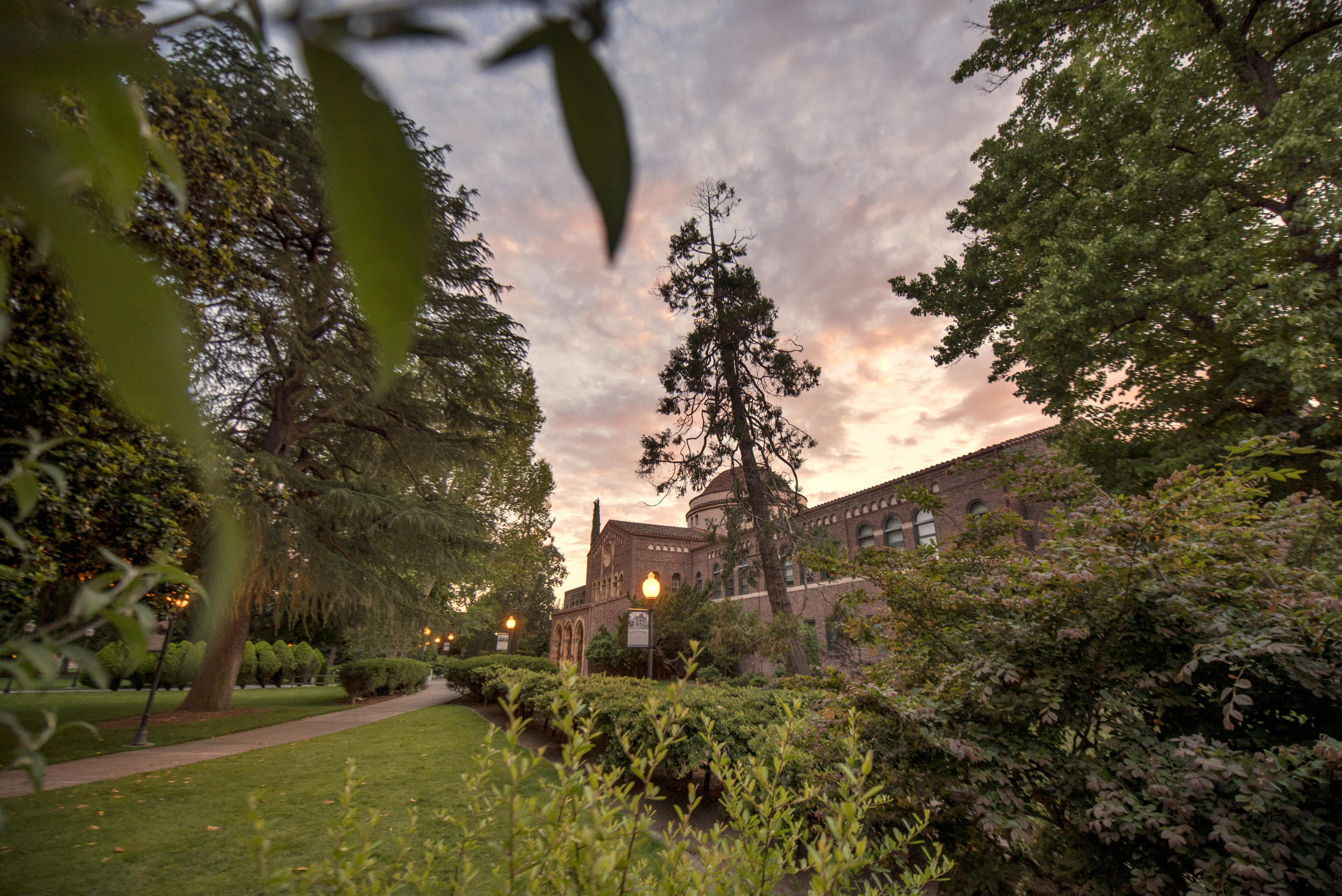
Kendall Hall is seen surrounded by plants during sunset on Monday, May 21, 2018 in Chico, Calif. (Jessica Bartlett /University Photographer/CSU Chico)
This year, 10 influential campus faculty were inducted to California State University, Chico Emeritus and Retired Faculty and Staff Association’s (ERFSA) 2019 Hall of Honor.
With leadership and support from the offices of the president and the provost at California State University, Chico, ERFSA established the Hall of Honor program in 2010 to recognize the “best of the best” of the University’s retired faculty. The program was expanded the following year to include outstanding retired Chico State staff, becoming the Emeritus and Retired Faculty and Staff Association.
Each of the Hall of Honor inductees have provided numerous years of dedicated service to the University and its students and programs, as well as to their own professions. They have also contributed in major ways to the greater Chico community and beyond by serving on boards and advisory councils, and as expert consultants. A complete list of past and present Hall of Honor members is available for review.
This year’s inductees will be honored at a luncheon from noon to 1:30 p.m. May 24 at Colusa Hall on the Chico State campus. Tickets are now available for purchase.
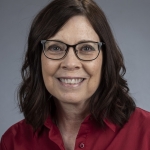
Susan “Sue” Anderson
Alumni and Parent Engagement
1998–2018
Susan “Sue” Anderson galvanized Chico State’s alumni program with her marketing acumen, flair for special events, and relentless work ethic.
After two years as assistant alumni relations director, Anderson became director of alumni and parent relations in 2000. She expanded and enhanced many alumni gatherings, such as the annual Distinguished Alumni Dinner and awards, to which she added a Distinguished Alumni Service Award in 2005.
Anderson developed The Chico Experience Week in 2010 as an annual campus-community collaboration that now features dozens of activities in the fall. The popular Senior Send-Off on campus was launched in the early 2000s to introduce graduating seniors into the University’s alumni ranks. In 2013, she initiated and managed the “Big C” photo for new students, and in 2015, under her leadership, the Chico State Alumni Association (CSAA) board eliminated dues for membership, allowing all alumni to enjoy being part of the CSAA.
Anderson’s savvy and creativity with externally focused projects enriched campus many times over the years. She led the University’s undergraduate Commencement, the largest event held on campus; she helmed the University’s year-long 125th Anniversary celebration; she co-directed the inauguration of President Gayle Hutchinson and served on the committee for President Paul Zingg’s inauguration; and she collaborated with campus partners to erect the Wildcat Statue in front of Bell Memorial Union. Her value to campus was recognized when she was promoted to assistant vice president for Alumni and Parent Engagement in 2014.
Many of Anderson’s programs were honored by awards from The Council for the Advancement and Support of Education (CASE), including The Chico Experience Week, the 125th Anniversary celebration, and the transition to a non-dues-paying alumni association. Anderson was very active in the community during her years on campus. She was on the boards for the Downtown Chico Business Association and the Chico Theater Company, and she was a member of Chico Noon Rotary and the Chico Education Hall of Fame Committee.
In retirement, she continues to serve on the board for the Stansbury Home Preservation Association and volunteer for the Chico Theater Company, the North Valley Animal Disaster Group, and the Butte Humane Society—where she is the volunteer cat photographer.
Anderson earned her BS in journalism from the University of Oregon in 1986. She also received an MA in communication from Jones International University in 2000.
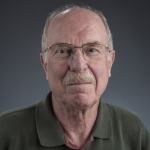
Dave Ball
Department of Chemistry and Biochemistry
1974–2018
Dave Ball’s passion for chemistry may only be matched by his determination to share it with students. No Chico State chemistry professor has done more to nurture interest in the major and send graduates off to prestigious careers in the field.
Early in his 44-year tenure, Ball completely revitalized the chemistry club and initiated the High School Chemistry Day, where area students are invited to campus to meet chemistry majors and participate in a chemistry magic show. The club went on to win several national chapter awards under his tutelage. To lead students in cutting-edge undergraduate research, Ball sought new high-quality instruments.
In 1999, he wrote a grant that enabled the department to obtain a $200,000 nuclear magnetic resonance spectrometer (NMR), which has subsequently been used by hundreds of chemistry majors. To showcase students’ fine work in the sciences, Ball established the College of Natural Sciences Poster Session in 2004.
To give students summer research opportunities, Ball contacted a former student of his who had become a chemical firm executive, and a $50,000 donation was obtained—the first of several industry gifts. The NMR and external funding led to the founding of the very successful Chemistry Summer Research Institute. To continue campus ties with chemistry majors, Ball created the Chemistry Alumni Reunion Symposium, the most recent of which was themed to honor Ball’s contributions.
Over the years, Ball has authored 21 peer-reviewed articles, including five since his retirement in 2015. In recognition of his long-standing research, Ball was awarded Professional Achievement Honors by the University in 2005. When the new Outstanding Research Mentor award was established in 2009, Ball was its first recipient. He has taken more than 50 students to scientific meetings to present posters on their research in his lab, and more than 55 of his former students have gone on to receive PhDs in chemistry.
“Personally, my career would never have been, had it not been for Dave,” said Craig Lindsley, director of Medicinal Chemistry at Vanderbilt University and a 2014 Distinguished Alumnus. “Everything I have accomplished in science is due to Dave.”
In retirement, Ball continues to mentor students, remains still active in the laboratory, and directs students in undergraduate research. Ball did his undergraduate work at University of California, Berkeley and earned his PhD in chemistry at UC Santa Barbara.
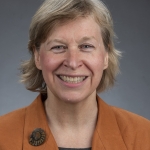
Debra Barger
Regional & Continuing Education
1988–2018
Debra Barger served Regional & Continuing Education (RCE) for 30 years in a series of increasingly important positions, playing a vital role in advancing the priorities of Chico State and the North State in the process.
Barger began her career as director of extension and summer session. In her later positions as associate dean and dean of RCE, she led the way in creating grants that enabled students to attend winter and summer sessions in order to graduate in a timely manner.
Distance education has long been a hallmark of Chico State. During Barger’s tenure, she was instrumental in the conversion of the University’s innovative distance education programs from satellite to online delivery. Through Barger’s efforts, RCE also helped transform educational outreach to lifelong learners. Chico State received two $1 million endowments from the Bernard Osher Foundation in support of the University’s Osher Lifelong Learning Institute as well as a $1 million endowment to provide financial support to re-entry students.
“She was most meticulous and precise in her analysis of continuing education potential for proposed programs,” said former RCE Dean Ralph Meuter. “Debra was relentless in pursuing excellence and demanding academic quality.”
At President Paul Zingg’s request, Barger also spearheaded the University’s North State Initiative, a project that enumerated the many ways the University aided its service area and looked for new areas of collaboration. Chico State greatly benefited from Barger’s vision regarding the remodel of Colusa Hall.
Under Barger’s leadership, RCE invested $2.8 million to revitalize the campus’s oldest building, and create a much-needed meeting space. The project emphasized harmony between the built and natural environments through the creation of the Creekside Plaza and the adjacent educational gardens between the RCE building and Big Chico Creek that feature native plants identified by signage in the Mechoopda language.
Barger’s civic engagement includes serving the Butte County chapter of the League of Women Voters for nearly 20 years, and she is currently the president. She previously served as treasurer for the KIXE TV Board of Directors and continues to pitch at pledge drives for North State Public Radio.
Barger completed her baccalaureate degree at Smith College and graduate degree at the LBJ School of Public Affairs, University of Texas at Austin.
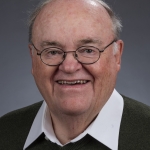
Gregg Berryman
Department of Communication Design
1969–2015
Gregg Berryman not only mentored many outstanding designers over the course of his 46-year career, he also lent his unique design skills to help shape the image of Chico State’s campus as we know it today. No one has had more to do with the evolution of this University’s graphic identity than Professor Berryman.
With special expertise in brand identity systems, Berryman was a natural to lead Chico State in developing its graphic look and feel. He went well beyond designing the University’s flame symbol, campus seal, and Wildcat images. He served as a consultant to several presidents on campus projects, including the 100th anniversary celebration, the University timeline in Kendall Hall, and the Nettleton Stadium signage. He was the cover designer and art director for 20 University catalogs.
During his tenure, Berryman was the architect and coordinator of Chico State’s renowned graphic design program. He was responsible for design history, letterforms, packaging, and brand identity courses that impacted over 4,400 graduates. In corporations, ad agencies, and as consultants and faculty in universities nationwide, hundreds of Chico State graphic design alumni have made a significant footprint across California and the nation.
Four of these award winners have been recognized as Distinguished Alumni for the College of Communication: Mark Ulriksen (60 New Yorker covers), Craig Frazier (US postage stamps), Steve Tolleson (the book Wash Spin Dry), and Michael Shea (work for Esprit and Nike).
The same willingness to help students was evident in Berryman’s desire to assist the community. He served on the board of the Chico Museum for 20 years. He curated the major exhibits Where is Chico?, Yosemite Revisited, and Chico Architecture. His enormous timeline exhibit Chico—A Place in Time documents the city from 1850–2000. Berryman participated in public art juries for the city of Chico Arts Commission and contributed posters and signage to Bidwell Mansion’s Visitor Center.
Berryman’s commitment and passion for Chico State is special. With his wife, Phyllis, he has endowed and awarded 75 graphic design scholarships. And as ardent boosters of Chico State Athletics, they have endowed and awarded 20 women and men’s basketball scholarships.
Berryman has authored three successful textbooks used in graphic design education, including the best seller Notes on Graphic Design. He earned a BS in design and Master of Applied Arts from Montana State University.
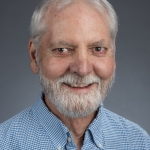
Daniel DeWayne
University Public Engagement
1997–2012
Dan DeWayne was already a successful arts presenter when he returned to his alma mater to work for University Public Events (UPE). Over the span of 15 years, he led the effort to transform Laxson Auditorium into a premier showcase for arts, lectures, and entertainment in the Western United States.
DeWayne co-founded the popular Strawberry Music Festival, the Chico World Music Festival, and the California World Fest, and produced Chico’s Shakespeare in the Park. Then he had the opportunity to become UPE’s associate director, which allowed him to work with legendary director Pat Kopp, a 2013 Hall of Honor inductee.
When DeWayne became director in 2001, he expanded the ways UPE and its presenting arm, Chico Performances, served the campus and the greater community. He added more performances for K–12 students on field trips, which at its peak brought over 15,000 schoolchildren to campus each year. DeWayne used his festival experience to attract major talent to the Laxson Auditorium stage, including initiating the President’s Lecture Series featuring Nobel Peace Prize recipients such as Desmond Tutu, Jody Williams, and Mikhail Gorbachev.
Along with directing UPE and Chico Performances, DeWayne also assumed oversight for KCHO, helping build its new identity as North State Public Radio. He worked with many colleagues across campus to enhance the quality of important events, including Commencement and convocation. DeWayne also served as lead staff for the Instructionally Related Activities Committee on campus.
Prior to his retirement in 2012, DeWayne received two prestigious honors from his peers in the arts presenting field: the 2010 Award for Excellence in Presenting the Performing Arts from the North American Performing Arts Managers and Agents, and the 2010 Darlene Neel Award for Dedicated Mentoring from the Western Arts Alliance. The City of Chico also honored DeWayne for the contribution UPE has made to the quality of life in Chico.
DeWayne earned his BA in psychology from Chico State in 1973. He is also a proud alumnus of the Peace Corps, having served in Mali in West Africa from 1977–79. The experience contributed to his appreciation for world music and diverse cultures, as expressed in the long-running theme for Chico Performances: Bridging Our World.
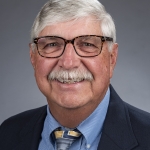
William “Bill” Fisher
Department of Mathematics and Statistics
1974–2010
William “Bill” Fisher brought an unparalleled amount of creativity, enthusiasm, and hard work to the crucial task of attracting and training students to be teachers of mathematics. His impact on math education in the North State will continue long beyond the 36 years he spent on the Chico State campus.
In 1978, Fisher founded the Mt. Lassen Mathematics Council, a professional organization for North State teachers. After the California Subject Matter Projects were launched in 1988, Fisher was involved from the beginning as the founding director of the Chico Mathematics Project (CMP). For more than 20 years, he designed and provided professional development for thousands of K–12 math teachers.
Fisher also founded the Center for Mathematics & Science Education in the College of Natural Sciences, through which he initiated programmatic and fiscal support for the CMP and the California Science Project. The Center assisted faculty in applying for grants to support research in math and science education involving K–12 teachers and math and science teacher preparation programs.
In 2001, Fisher co-developed the Project Mathematics and Teaching on the Horizon (MATH) program to support aspiring math teachers. Participants could share freshman- year housing, participate in special seminars, and have early field experiences with mentor teachers. Hundreds of Chico State students have completed the program, which is still going strong today.
Working collaboratively with the College of Communication and Education (CME), Fisher secured major grants to increase the quantity and quality of math and science students in credential programs. CSU System grants helped increase the number of teachers at the middle and high school levels. Prestigious National Science Foundation grants provided scholarships and other means to recruit top students to be teachers.
To offer students a streamlined pathway into teaching, Fisher developed one of the first blended programs in the state. The program provided students the opportunity to earn their undergraduate degree in math education and their single subject credential in math in just four years.
“In my 20 years of experience at Chico State, I can think of few individuals who have worked so tirelessly to influence and make a positive difference in the lives of students and future teachers,” said Deborah Summers, associate dean in CME.
Fisher completed his undergraduate work at the University of Wisconsin-Madison. He earned his MA and PhD at the University of Oregon.
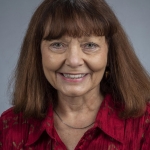
Barbara Heidinger
Department of Psychology
Regional & Continuing Education
1981–2012
Barbara Heidinger was an exemplary staff member at Chico State for 30 years and she has continued to aid multiple areas of the University with her trademark efficiency, positive attitude, and good humor.
Since her retirement in 2011, Heidinger has worked as a retired annuitant for eight different campus offices when there is a vacancy or staff person’s extended absence. Her fill-in assignments have included stints in the Departments of Sociology, History, Social Work, and Music and Theatre, three dean’s offices, and the Office of the Provost.
Prior to retirement, Heidinger worked at Regional & Continuing Education (RCE) for 20 years and the Department of Psychology for 10, primarily as an administrative support coordinator (ASC) II. While at RCE, she was essential to the renown of the University’s trailblazing distance education programs. Heidinger communicated with students, hired proctors and monitors, and handled the logistics for classes beamed to colleges, offices, hospitals, and military bases—at one time, this represented 41 receiving sites in all.
“Her dedication to the students and her ability to communicate had significant impact on Chico’s success in distance education,” said Clare Van Ness, interim dean of RCE.
At the Department of Psychology, Heidinger worked on budget, course scheduling, recruitment, and many other tasks typical of a large academic office.
“Barb is the consummate professional—she has the competence to act effectively and the confidence to take initiative,” said psychology professor Margaret Bierly. “She is a poised multitasker and team player. At the same time, she is highly approachable and has a ready laugh.”
To honor her contributions to the campus, Heidinger was named Staff Employee of the Year in 2005.
In the community, Heidinger left her mark as a 17-year member of the Bidwell Rancho chapter of Soroptimist International, including serving two terms as president. She launched the chapter’s main fundraiser, the Microbrew Festival, and received a regional award for her efforts marketing the event in 2001.
Heidinger earned her BA in geography from Chico State in 1973.
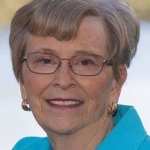
Mary Jensen
Department of Professional Studies in Education
1987–2005
Mary Jensen greatly advanced the field of special education statewide and nationally through her teaching, grant writing, research, and program creation, thereby improving the lives of countless individuals with disabilities.
Prior to her 18-year faculty career at Chico State, Jensen spent 15 years as a teacher and psychologist in public schools in Los Angeles, Chico, and Paradise. This experience was invaluable to her understanding of what standards were needed in special education and how to best train teachers to uphold them.
In 1994, Jensen initiated an experimental credential program that combined general and special education content and methodology. It later evolved into the present-day credential pathway, the Concurrent Program, in the School of Education.
The program became a model for many other CSU teacher preparation programs and has won state and national awards for excellence. Jensen also led the development of a regional special education intern teacher program and a master’s degree in special education. Once these new programs were instituted, Chico State’s special education course enrollment more than tripled. Hundreds of additional new teachers completed these Chico State programs and currently serve in K–12 settings.
Jensen was principal investigator and director of US Department of Education project awards that totaled more than $20 million in state and federal grants. In addition to her prodigious grant writing, she gave more than 40 national- and state-level presentations, and published more than 15 articles and seven books or book chapters. A more light-hearted publication was Rudy’s Rules for Travel: Life Lessons from Around the Globe, Jensen’s memoir of her travels with her late husband, Rudy. Kirkus Reviews named it one of the best books of 2018, and it garnered three national awards for excellence.
Among the many ways Jensen sought to give back to Chico State was philanthropy. Together with her husband, she established two Chico State scholarships: the Mary and Rudy Jensen Scholarship for students pursuing a career in special education; and the Mary and Rudy Jensen Music Recruitment Scholarship, supporting incoming students studying classical music.
Jensen earned her undergraduate and master’s degrees from Loyola Marymount University. She received her PhD in educational psychology from the University of Oregon.
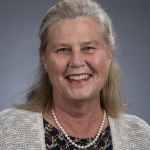
Mary Portis
Department of Health and Community Services
1989–2013
Mary Portis is the epitome of a faculty member committed to service, both as a means to enhance student learning and as a way to enrich the lives of community members.
Portis received her doctorate in public health from Loma Linda University and came to Chico State to teach theory-based public health program planning, implementation, and evaluation. In all her classes, students created new programs and implemented programs in the community. Some of the topics addressed were hypertension, diabetes, fire prevention, environmental health, nutrition, fitness, and mental health. The settings included preschool to high school, migrant farm worker camps, homeless shelters, assisted living facilities, blood banks, fire departments, and hospitals. The varied populations served had an emphasis on low income and diverse groups.
For all the projects, Portis worked side by side with her students. Her style of service learning allowed her to model professional skills, keep her practitioner skills current, and have an accurate, authentic measure of her students’ skills. Among Portis’ many grant-funded projects, the one she feels has made the most impact started with a grant from the California Wellness Foundation for work in Chico’s Chapman neighborhood.
Started in 1997 and still ongoing, Leaders for a Lifetime (L4L) encourages Hmong high school, Butte College, and Chico State students to help others through service, cultural education, and performance activism. Every year, L4L youth help others understand cultural differences and how to make people’s lives more equitable. The college students learn to teach and mentor, while all L4L participants learn leadership skills, perform original theater, create museum exhibits, present at conferences, and participate in special events.
After Portis retired in 2013 and the community went without L4L for one year, the high school students asked her if it could resume. Portis could not say no to students who wanted to volunteer their own time. So now, in retirement, she continues to assist high school and college students in activities that will help their futures while they help their community.
Professors Diana Flannery and Holly Nevarez, Portis’ colleagues in the health and community services department, said it is no small task to describe her combination of dedication, ability, humanity, and creativity. They emphasized that Portis’ enduring commitment to service as well as her love and appreciation of students is an inspiration to everyone she encounters.
Portis earned her BS in health science and an MS in health science from CSU Long Beach and her doctorate in public health from Loma Linda University.
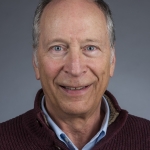
Dale Steiner
Department of History
1974–2013
Praised by students and colleagues alike, Dale Steiner was for many the history professor against whom all others were measured. His teaching, advising, scholarship, and mentorship of faculty both in the academy and at K–12 schools set a standard for excellence over the span of his 40-year career.
Steiner was named the University’s Outstanding Teacher in 1998, the year he also was named Chico Chamber of Commerce’s Outstanding Teacher. Among his many other accolades from Chico State are the 1995–97 Master Teacher Award, and the Outstanding Academic Advisor Award for 1995–1996. In 1996, he was also named Outstanding Academic Advisor by the National Academic Advising Association.
Known as a gifted classroom instructor who gave beautifully crafted lectures and led spirited discussions, Steiner honed his historian’s craft by staying abreast of trends. He was deeply committed to sharing his expertise with others, regionally and nationally. For 20 years he served in a variety of roles—resident scholar, principal investigator, co-director—for the North State History-Social Science Project. During this time, he co-wrote the Teacher Leader Toolkit, a CD which was distributed to teachers by the North State History-Social Science Project.
Steiner was also executive director of the California Council for History Education from 2005–2009, and a member of the board of directors of the National Council for History Education from 2009-2016, serving as its vice chair in 2012 and chair from 2013–2016.
He supported his efforts to enhance history teaching through a series of grants from the US Department of Education and the California Legislature. Much of Steiner’s scholarship also pertained to teaching.
One of his books, Of Thee We Sing: Immigrants and American History, was used in history courses at Chico State and other campuses, and found a market among general readers as well. His book Test Manual for The American Past provided instructional tools for teachers who made use of the widely assigned textbook, The American Past. An earlier book, Historical Journals: A Handbook for Writers and Reviewers, assisted professional and non-professional historians in finding the journals most suited to publishing their articles and reviews.
Steiner did his undergraduate work at Western Reserve University. He obtained his master’s degree and PhD from the University of Virginia.


